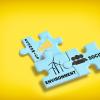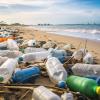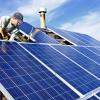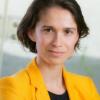
Only a minority of the global population currently enjoy high levels of wellbeing, while many are experiencing multidimensional poverty. A new IIASA strategic initiative – JustTrans4All – aims to improve our understanding of how to make the needed transitions more just.
As interconnected challenges such as the ongoing COVID-19 pandemic, climate and environmental change, and pervasive poverty infringe on development opportunities and the Earth’s resources, they are not only impacting human wellbeing today, but also the wellbeing of future generations. With COP26 in Glasgow, Scotland fast approaching, the spotlight is currently on climate change – one of the biggest challenges we face – and the message is clear: to minimize climate change and its impacts we must decarbonize. However, to achieve decarbonization, we have to consider how transitions to net-zero carbon emissions can be designed so they leave nobody behind and do not compromise on universal human wellbeing.
The IIASA Just transitions to net-zero carbon emissions for all (JustTrans4All) project, which forms part of a suite of projects under the IIASA Strategic Initiatives Program, will contribute to novel analyses of transition pathways that are socially and environmentally just. The project will inform policy design, aiming to achieve high levels of human wellbeing within planetary boundaries in line with the UN 2030 Agenda and the Paris Agreement.
“We aim to develop, quantify, and test the first comprehensive set of just transition scenarios towards a net-zero carbon society. Our goal is to provide guidance on designing policies for socio-ecological transformations that enjoy societal support and leave no one behind. To achieve this, we will combine a soft-systems analysis approach grounded in ethical reasoning with quantitative, empirical, and prospective model-based techniques, thereby also contributing to advancing the field of systems analysis,” explains IIASA researcher Caroline Zimm, who leads the project at IIASA.
The project brings together researchers from diverse disciplinary backgrounds and scientific approaches from the IIASA Energy, Climate, and Environment Program, the Economic Frontiers Program, and the Population and Just Societies Program, to tackle a number of challenging research questions. This includes questions such as how to characterize and operationalize elements of fairness and justice when assessing transitions to net-zero carbon emissions for all, and determining what we can learn from recent empirical data on the underlying factors driving transitions, their impacts on human wellbeing, and their distributional implications across diverse population groups. Researchers working under the auspices of the project will also endeavor to understand how future net-zero development pathways differ in their distribution of wellbeing.
IIASA National Member Organizations are invited to collaborate with the JustTrans4All team as they address these research questions, and to develop and apply the framework that is set to emerge from the project to their country’s context.
Further information
https://iiasa.ac.at/web/si.html
News

16 July 2024
Mapping global rooftop growth for sustainable energy and urban planning

28 June 2024
Drowning in waste: pollution hotspots in aquatic environments

21 June 2024
